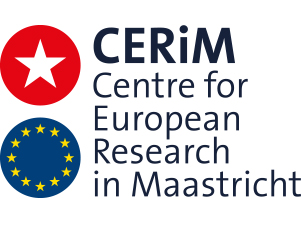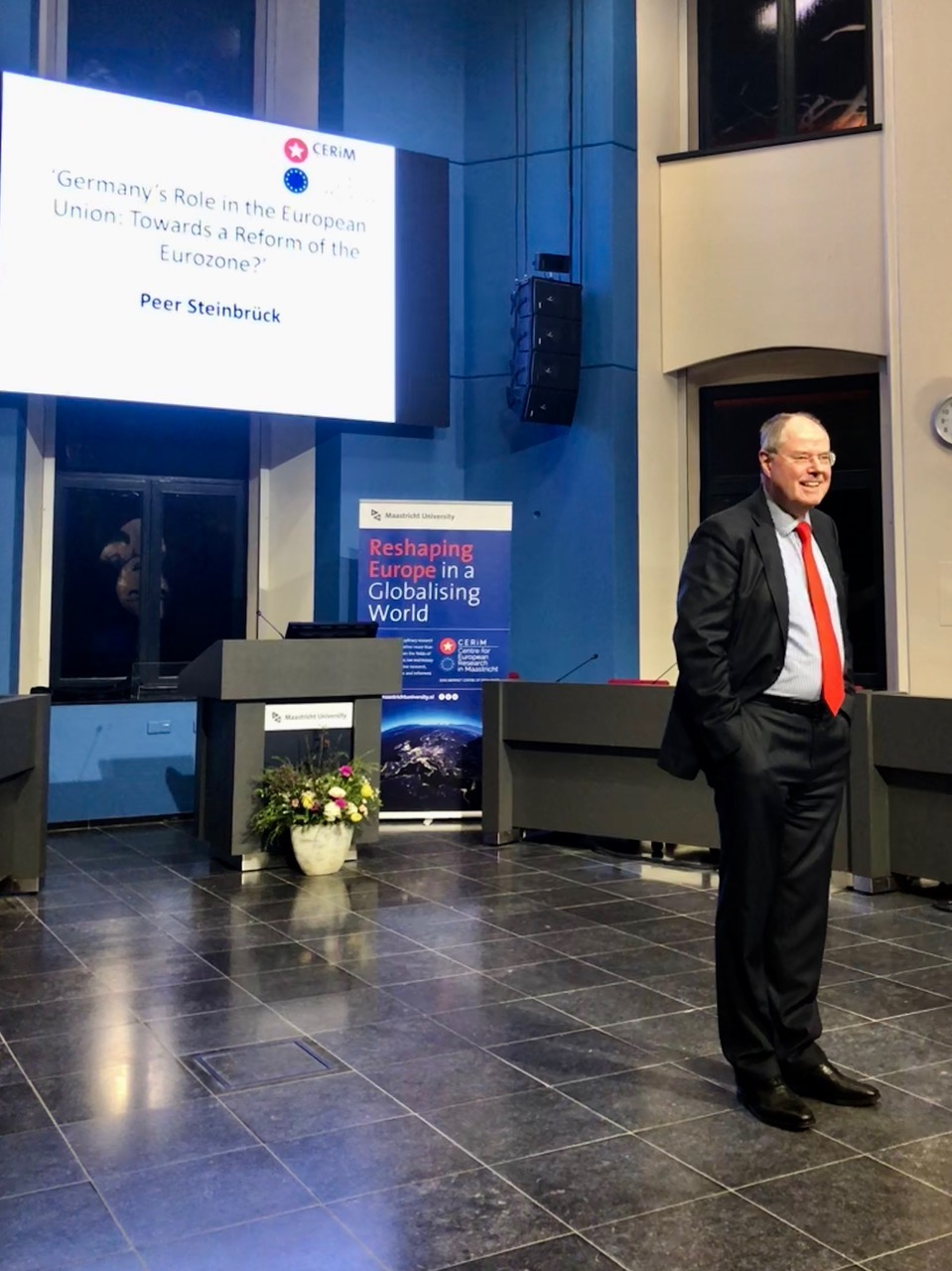Summary of Jean Monnet Lecture with Peer Steinbrück
− 3 min readOn Monday March 19th, CERiM welcomed the former German Minister of Finance Peer Steinbrück for our third Jean Monnet Lecture. In his lecture titled ‘Germany’s Role in the European Union: Towards a Reform of the Eurozone?', he discussed a number of issues faced by the European Union today in light of various developments such as the refugee crisis, the ongoing economic crisis, and the power vacuum left as a result of the withdrawal of the Anglo-Saxon powers from the political stage.
In his lecture titled “Germany’s Role in the European Union: Towards a Reform of the Eurozone”, he addressed three main developments that characterise current politics: firstly, we are no longer in the post-Soviet ‘era of peace’, secondly, power vacuum left by the withdrawal of the United States from the current state of politics, thirdly, the rise of China and its silk road investments, fourthly, the rise of failing states, the refugee crisis and its impact on societies, such as the rise of right-wing political sentiments. Overall, Steinbrück solemnly declared that "Europe is not in a good condition”.
In surveying the current state of play in Europe, he identified nine main challenges that, depending on how they are dealt with in the coming years, will determine the future of the EU:
- Stabilisation of the European Monetary Union
- Completion of the Banking Union
- Continental Europe needs to elaborate on a coherent common foreign security policy (Russia, Eastern Europe, Africa, etc)
- An agreement and strategy on the distribution of refugees in Europe
- Strengthening of Frontex to secure external borders as the burden has been left to Greece and Italy
- Current foreign aid policy towards Africa needs to be reformed
- Combat tax evasion and avoidance, perhaps through the harmonisation of tax systems in Europe
- Reform of European institutions
- Principle of subsidiarity should be pursued by the Commission as they should be responsible for cross-border issues but not for national issues
On specifically how Germany intends to address these challenges faced by Europe, Steinbrück did not have a solution but offered an explanation as to what might work and what might be a model for other member states to follow. He reflected on the current German government and characterised it as committed to a pro-EU agenda, the free market, and supporting the social market. However, on the handling of financial turmoil, Germany works under a contrary paradigm to that of the Mediterranean model: short-term and goal-oriented reforms compared to deficit spending. As there is much dissatisfaction, and resentment even, towards how the Greek financial crisis was managed, Steinbrück suggested that a fundamental change in paradigm in crisis management is needed as this impacts European solidarity. Furthermore, given Germany’s heavy export market, which makes up a large share of Germany’s GDP, Germany has a responsibility to ensure that its neighbors are doing well.
After his lecture, Steinbrück took questions from the audience, leading to a lively discussion and sharing of his thoughts on topics ranging from Germany and its role in European security, the future of social democracy with Germany and France’s current relationship as the example, the likelihood of a coherent European foreign policy towards Russia and China, the possibility of a European finance minister, the possibility of enlargement of EU monetary and membership, and the likelihood of harmonisation of tax rates in the EU.

